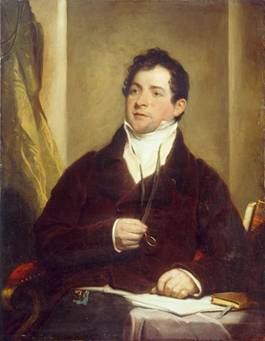According to literary criticism, Thomas Moore – Dublin (1779-1852), was for green Ireland, what Robert Burns had once been for the Highlands of Scotland.
He was a poet but also a scholar imbued with romanticism, who could bend the language with imagination and taste, creating small poetic masterpieces. The then awakened interest in popular song was in fact a more exquisitely poetic phenomenon, with which the Romantics tried to identify and express the feeling of a people.
It is remembered above all for the “Irish melodies“, with musical arrangement of the friend John S. Stevenson, published in ten volumes of twelve songs between 1807 and 1834, in which he proposed “to express in the poetry the sweet and moving language of the music of his homeland”. To these were added “National airs” (1815) and “Sacred songs” (1816).
Although his compositions had made him rich and famous, most of them did not pass the nineteenth century and today his songs, with very few exceptions, are mostly forgotten because its considered anachronistic. in fact contrary to Burns who used the Scotsman in his poems Moore wrote in English: melancholy and sweetness but on the notes of the piano, an icon of bourgeois romantic aesthetics.
Secondo la critica letteraria, Thomas Moore – Dublino (1779-1852), fu per la verde Irlanda, ciò che Robert Burns era stato un tempo per le Highlands della Scozia.
Egli era un poeta ma anche un erudito imbevuto di romanticismo, che seppe piegare il linguaggio con fantasia e gusto, creando dei piccoli capolavori poetici. L’allora risvegliato interesse per il canto popolare fu infatti un fenomeno più squisitamente poetico, con i quali i Romantici cercavano di identificare ed esprimere il sentire di un popolo.
E’ ricordato soprattutto per le “Irish melodies“, con arrangiamento musicale dell’amico John S. Stevenson, pubblicate in dieci volumi di dodici canzoni tra il 1807 e il 1834, in cui si proponeva «di esprimer nei carmi la lingua dolce e commovente della musica della sua patria». A queste si aggiunsero “National airs” (1815) e “Sacred songs” (1816).
Sebbene le sue composizioni l’avessero reso ricco e famoso, la maggior parte di esse non hanno superato l’Ottocento e oggi la sue canzoni, tranne pochissime eccezioni, sono state dimenticate probabilmente perchè considerate anacronistiche; infatti contrariamente a Burns che utilizzò lo scozzese nelle sue riscritture Moore scrisse in inglese, effondendo si malinconia e dolcezza ma sulle note del pianoforte, allora icona dell’estetica romantico-borghese.
Thomas Moore A-Z list song in Terre Celtiche Blog
BELIEVE ME IF ALL THOSE ENDEARING YOUNG CHARMS
How Oft Has The Banshee Cried
I’VE A SECRET TO TELL THEE
LAST ROSE OF SUMMER
MEETING OF THE WATERS
MINSTREL BOY
THE HARP THAT ONCE THROUGH TARA’S HALL
THO’ THE LAST GLIMPSE OF ERIN
WEEP ON, WEEP ON, YOUR HOUR IS PAST

